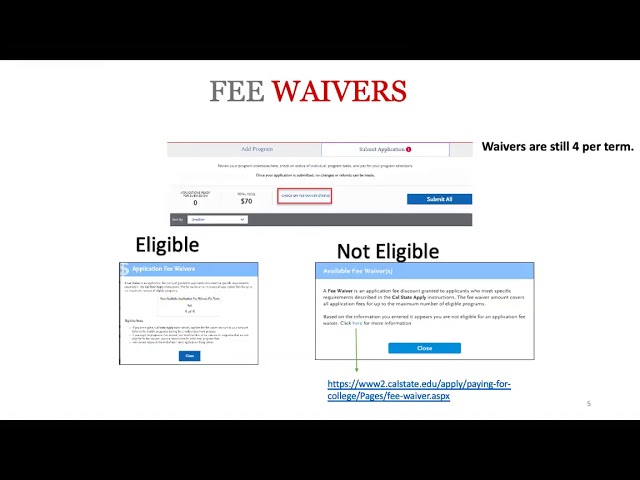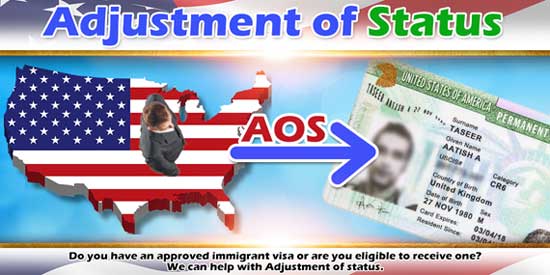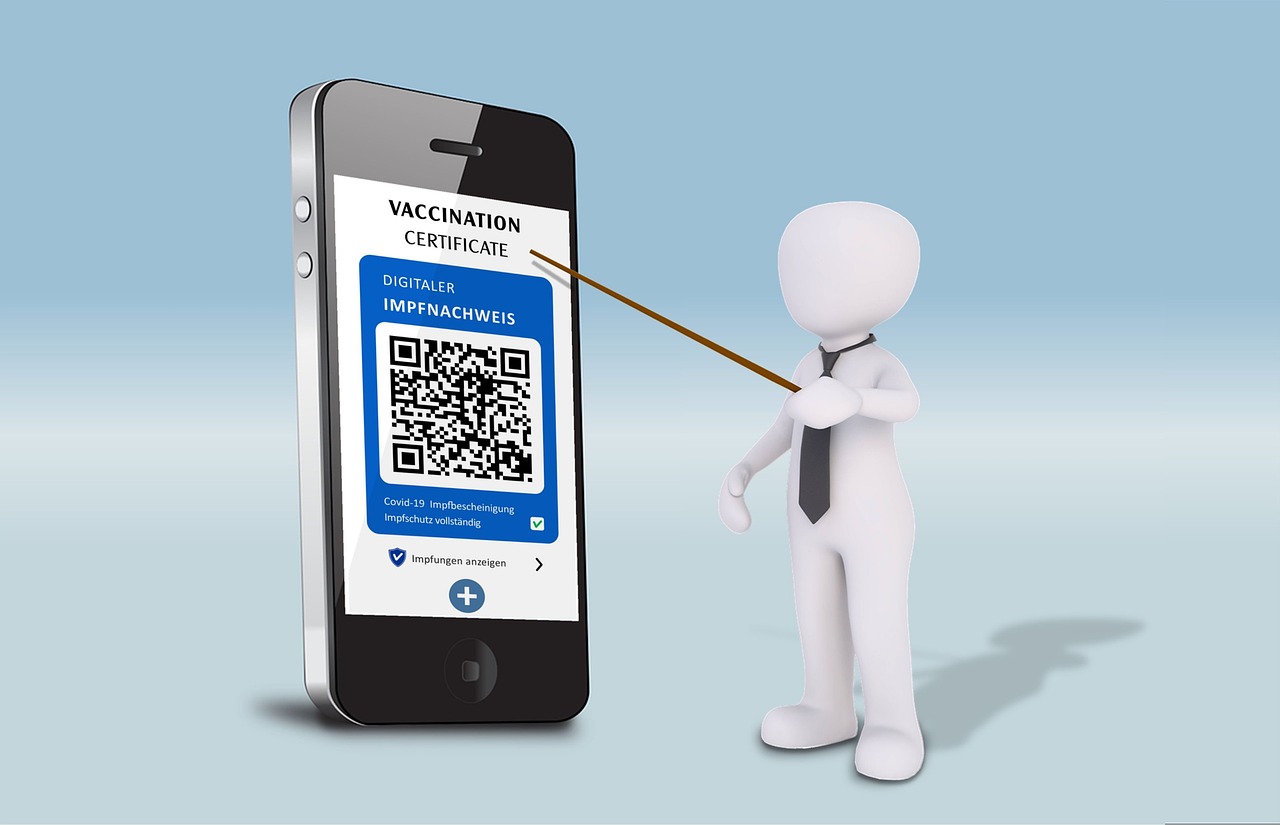Table of Contents
- Inadmissibility Issues
- Consult with an Immigration Attorney
- Gather Supporting Documents
- Apply for Waivers
- Visa Bulletin Backlogs
- Regularly Check the Visa Bulletin
- Plan Ahead
- Changes in Immigration Policies
- Stay Informed
- Consult with an Immigration Attorney
- Documentation and Evidence
- Thoroughly Review Requirements
- Seek Legal Assistance
- Keep Copies
- Medical Examinations and Vaccination Records
- Schedule the Medical Examination Early
- Obtain Vaccination Records
The path to obtaining lawful permanent residency in the United States through the adjustment of status process is filled with promise and opportunity. However, like any journey, it can present its fair share of challenges and obstacles. In this article, we will explore some of the potential hurdles that applicants may encounter during their adjustment of status journey and provide guidance on how to overcome them.
The pursuit of lawful permanent residency in the United States through the adjustment of status process is a journey that symbolizes hope, ambition and a new chapter in one’s life. It’s a path that opens doors to countless opportunities and the promise of building a brighter future. However, like any significant journey, the adjustment of status process comes with its unique set of challenges and obstacles. In this article, we delve deeper into these potential hurdles, recognizing that understanding them is the first step toward overcoming them:
Complex Immigration Laws: Navigating the intricate web of U.S. immigration laws and regulations can be daunting. The legal framework governing immigration is extensive and subject to change. Applicants must stay informed about the latest rules and requirements to ensure compliance.
Eligibility Criteria: Meeting the eligibility criteria for adjustment of status is crucial. Applicants must maintain a lawful status, have a qualifying family relationship or employment offer and meet other specific requirements. Any deviation from these criteria can result in ineligibility.
Backlogs and Visa Availability: Certain visa categories may experience backlogs, leading to extended waiting periods for visa numbers to become available. This can delay the adjustment of status process and applicants must be patient and informed about visa bulletin updates.
Request for Evidence (RFE): Receiving an RFE from U.S. Citizenship and Immigration Services (USCIS) can be stressful. Responding effectively to an RFE requires careful attention to detail and a thorough gathering of additional documentation to support the application.
Documentation Challenges: Providing comprehensive and accurate documentation can be challenging. Applicants must gather various forms, affidavits, financial records, medical examinations and more. The burden of proof rests with the applicant and missing or incomplete documents can lead to delays or denials.
Financial Requirements: Demonstrating financial stability is a key component, especially in family-sponsored green card applications. Meeting income and sponsorship requirements can be a hurdle and co-sponsors may be necessary in some cases.
Criminal Records: Criminal history can complicate the adjustment of status process. Applicants with certain criminal convictions may face inadmissibility issues and must seek waivers or legal counsel to address these concerns.
Inconsistent Information: Providing consistent and truthful information throughout the application process is vital. Any inconsistencies, whether unintentional or deliberate, can raise red flags and lead to denials.
Language and Cultural Barriers: For applicants who are not native English speakers or are less familiar with U.S. culture and customs, language and cultural barriers can pose challenges during interviews and interactions with USCIS officials.
Interview Process: The adjustment of status process often includes interviews with USCIS officers. Applicants must prepare adequately, ensuring they can confidently answer questions about their applications and intentions.
Travel Limitations: During the adjustment process, international travel can be restricted. Applicants must be aware of these limitations and plan their travel accordingly.
Changing Circumstances: Life circumstances can change during the waiting period, affecting eligibility or priorities. Staying adaptable and informed is crucial to address any unexpected developments.
Consulting with Immigration Professionals: Applicants may benefit from seeking advice from immigration attorneys or experts who can provide guidance and address specific concerns related to their unique situations.
In summary, the adjustment of status journey is a transformative process that carries immense promise, but it also presents challenges. Understanding and anticipating these hurdles is essential for a successful outcome. With determination, knowledge and the right support, applicants can overcome these obstacles and take significant steps toward achieving lawful permanent residency in the United States.
Looking for more insights? You’ll find them right here in our extended coverage: Resilience
Inadmissibility Issues
One of the most common obstacles in the adjustment of status process is inadmissibility. Inadmissibility can arise from various factors, including criminal history, health-related concerns, prior immigration violations or security issues. To overcome inadmissibility issues, applicants should:
Navigating inadmissibility issues is a critical aspect of the adjustment of status process in the United States. While inadmissibility can present challenges, there are proactive steps that applicants can take to address and overcome these hurdles. Here’s an expanded discussion on how to handle common inadmissibility factors:
1. Criminal History:
- Legal Consultation: Seek legal counsel to assess the impact of your criminal history on your immigration application. An attorney can help determine whether the conviction falls under a category of crimes that may make you inadmissible.
- Waivers: In certain cases, individuals with criminal convictions may be eligible for waivers of inadmissibility. Consult with an attorney to explore if you qualify for a waiver and to guide you through the waiver application process.
2. Health-Related Concerns:
- Medical Examination: Attend the required medical examination as part of the adjustment of status process. If a medical condition is identified, consult with a healthcare professional to determine if treatment or management is possible.
- Medical Waivers: Some health-related concerns can be overcome through medical waivers. Consult with an immigration attorney to determine if you qualify for a waiver and how to apply for it.
3. Prior Immigration Violations:
- Legal Assessment: Seek legal advice to understand the nature of your prior immigration violations and their potential impact on your application.
- Removal Proceedings: If you have previously faced removal proceedings, consult an attorney to evaluate your options for reopening or reconsideration.
4. Security Issues:
- Legal Assistance: If you are flagged for security-related concerns, consult an attorney experienced in immigration and national security issues to understand the specifics of your case and potential remedies.
- Clearance Procedures: In some cases, you may be required to undergo additional security clearance procedures, which can extend processing times. Stay patient and cooperative throughout this process.
5. Gather Evidence and Documentation:
- Thorough Documentation: Collect and organize all necessary documents, including court records, medical records, certificates of rehabilitation or any other evidence that supports your case and demonstrates that you pose no threat to U.S. national security or public safety.
6. Consistency and Honesty:
- Consistency: Ensure that all information provided in your application, including responses to questions about criminal history, immigration violations or security concerns, is consistent and accurate.
- Full Disclosure: Be honest and transparent about your history and circumstances. Failing to disclose relevant information can lead to more severe consequences.
7. Legal Representation:
- Consult an Attorney: Engage an experienced immigration attorney who specializes in handling inadmissibility issues. An attorney can provide guidance tailored to your unique situation and help you navigate the complex immigration system.
8. Waiver Applications:
- Prepare Strong Waiver Applications: If you are eligible for a waiver, work closely with your attorney to prepare a strong and persuasive waiver application that addresses the specific grounds of inadmissibility.
Overcoming inadmissibility issues requires a strategic and well-informed approach. Seeking legal advice, understanding the nature of the inadmissibility and diligently following the guidance of an experienced immigration attorney can significantly improve your chances of success in the adjustment of status process. Each case is unique and with the right guidance, many individuals can successfully address and overcome inadmissibility hurdles on their path to obtaining lawful permanent resident status in the United States.
To expand your knowledge on this subject, make sure to read on at this location: Immigration Archives – Louisiana Family, Criminal & Immigration …

Consult with an Immigration Attorney
Seek legal counsel to assess your specific situation and explore possible waivers or remedies for inadmissibility.
When facing inadmissibility issues in the context of immigration, seeking legal counsel is not just a prudent step; it can be a lifeline to explore various waivers and remedies tailored to your unique circumstances. Here’s an extended idea on the importance of consulting with an immigration attorney:
Comprehensive Assessment: An experienced immigration attorney begins by conducting a comprehensive assessment of your immigration situation. They delve into the specific details of your case, including the reasons for inadmissibility, your immigration history and your long-term goals. This in-depth analysis is critical to determining the most appropriate course of action.
Identifying Inadmissibility Grounds: Inadmissibility can stem from various factors, such as criminal convictions, health-related concerns, visa violations or immigration fraud. Your attorney can identify the precise grounds of inadmissibility and help you understand their implications on your immigration prospects.
Waiver Eligibility: Depending on the nature of your inadmissibility, there may be waivers available that can grant you relief and allow you to proceed with your immigration plans. These waivers are often complex and require a strong legal argument. An attorney can assess your eligibility for specific waivers and guide you through the waiver application process.
Documentation and Evidence: Crafting a compelling case for a waiver or remedy involves gathering the right documentation and evidence to support your claims. Your attorney will assist you in collecting and presenting the necessary materials, ensuring that your application is well-prepared and persuasive.
Navigating Legal Procedures: Immigration procedures, especially those involving waivers and remedies, can be labyrinthine. An attorney is well-versed in the intricacies of the legal process and can guide you through each step, ensuring that you meet all deadlines and fulfill all requirements.
Appeals and Litigation: If your waiver application is denied or if you face other legal challenges, your attorney can explore appeals or litigation as potential remedies. They can represent your interests in immigration court and seek a favorable resolution.
Alternative Immigration Paths: In some cases, it might be necessary to consider alternative immigration pathways if overcoming inadmissibility proves too difficult. An immigration attorney can explore alternative visa categories or immigration options that are more aligned with your qualifications and goals.
Consistent Updates and Communication: Throughout the process, your attorney will provide you with regular updates and maintain open lines of communication. This transparency helps you stay informed about the progress of your case and any developments that may arise.
Peace of Mind: Facing inadmissibility concerns can be stressful and emotionally taxing. Having an immigration attorney by your side provides peace of mind, knowing that you have a dedicated advocate working tirelessly to resolve your immigration issues.
In summary, seeking legal counsel is a proactive and essential step when dealing with inadmissibility in the realm of immigration. An immigration attorney’s expertise can make the difference between overcoming inadmissibility and facing insurmountable obstacles. By working closely with an attorney, you can explore tailored solutions, navigate complex legal procedures and ultimately move forward with your immigration goals.
To delve further into this matter, we encourage you to check out the additional resources provided here: Interview Question: “Give an Example of Overcoming an Obstacle …

Gather Supporting Documents
Collect all relevant documentation, such as criminal records, medical evaluations or affidavits, to demonstrate your eligibility and address the grounds of inadmissibility.
Collecting all relevant documentation is a pivotal step in the immigration process, whether you’re applying for a visa, adjusting your status or pursuing any other immigration-related matter. The importance of this step cannot be overstated, as the documentation you provide serves as the foundation for your case and plays a significant role in demonstrating your eligibility while addressing any potential grounds of inadmissibility. Here’s a more detailed exploration of why thorough document collection is crucial and the types of documents you may need:
1. Demonstrating Eligibility: One of the primary purposes of collecting documentation is to prove that you meet the eligibility criteria for the immigration benefit you’re seeking. For example, if you’re applying for a family-sponsored visa, you may need to provide documents that establish your relationship with the sponsoring family member, such as birth certificates, marriage certificates or adoption records.
2. Addressing Inadmissibility Concerns: U.S. immigration law outlines various grounds of inadmissibility that can prevent an individual from entering the country or obtaining immigration benefits. Collecting the right documents can help you address and mitigate concerns related to these grounds. For instance, if you have a criminal record, you may need to gather certified copies of court dispositions, rehabilitation records or character references to demonstrate rehabilitation and good moral character.
3. Supporting Claims and Statements: Your application or petition may involve statements and claims that need substantiation. Documents serve as tangible evidence to support these assertions. For example, if you’re applying for an employment-based visa, you might need to provide letters of recommendation, employment contracts or tax records to prove your work history and qualifications.
4. Meeting Deadlines: Many immigration applications have strict deadlines for submitting required documents. Failing to meet these deadlines can result in delays, RFEs (Requests for Evidence) or even denials. By proactively collecting and organizing your documents, you can ensure timely submission.
5. Enhancing Credibility: Thoroughly documented applications not only meet legal requirements but also enhance your credibility in the eyes of immigration authorities. It demonstrates your commitment to following the rules and providing transparent and accurate information.
6. Consistency and Accuracy: Collecting documentation helps ensure that the information you provide in your application is consistent and accurate. Any discrepancies or inconsistencies can raise red flags and lead to further scrutiny or denial.
7. Consultation with Legal Counsel: Consulting with an immigration attorney is highly advisable during this process. They can help you identify the specific documents you need, guide you through the document collection process and ensure that your case is well-documented and compelling.
8. Document Translation and Certification: If any of your documents are in a language other than English, you may need to have them professionally translated and certified to ensure their validity in the U.S. immigration process.
9. Organized Record-Keeping: Effective document collection involves not only gathering the necessary papers but also keeping them organized. This can help you access and present the required documents efficiently when needed.
10. Future Immigration Matters: The documents you collect may also be valuable for future immigration matters, such as applying for a green card, citizenship or sponsoring family members. Maintaining a comprehensive immigration document archive can simplify these future processes.
In summary, collecting all relevant documentation is a foundational step in the immigration process, serving to demonstrate your eligibility, address potential grounds of inadmissibility and ensure compliance with immigration requirements. The careful gathering, organization and presentation of these documents are essential to a successful immigration application, ultimately bringing you closer to achieving your immigration goals in the United States.
Looking for more insights? You’ll find them right here in our extended coverage: Equity and Quality in Education: Supporting Disadvantaged …

Apply for Waivers
If applicable, apply for waivers such as the I-601 or I-601A waiver to request forgiveness for certain grounds of inadmissibility.
Certainly, let’s expand on the idea of applying for waivers to address grounds of inadmissibility:
Navigating Inadmissibility: Applying for Waivers
Inadmissibility can pose a significant hurdle in the adjustment of status journey, but it’s important to recognize that not all grounds of inadmissibility are insurmountable. In certain cases, applicants have the option to request waivers, such as the I-601 or I-601A waiver, which can grant forgiveness for specific grounds of inadmissibility. Here’s how these waivers work and how to approach them:
**1. I-601 Waiver:
Eligibility Criteria: The I-601 waiver, also known as the Application for Waiver of Grounds of Inadmissibility, is available to individuals who are seeking to overcome various grounds of inadmissibility, such as unlawful presence, certain criminal convictions, fraud or misrepresentation and more.
Establish Extreme Hardship: To qualify for the I-601 waiver, you must demonstrate that your U.S. citizen or lawful permanent resident spouse or parent would experience “extreme hardship” if you were denied admission to the United States. This hardship must go beyond the typical emotional or financial difficulties associated with separation.
Provide Compelling Evidence: Gathering comprehensive and compelling evidence of extreme hardship is crucial. This may include medical records, psychological evaluations, financial documents and detailed statements explaining how the family member would be adversely affected.
Legal Counsel: Given the complexity of the I-601 waiver process, consulting with an experienced immigration attorney is highly advisable. An attorney can assess your case, guide you through the application and help you compile the necessary evidence.
2. I-601A Waiver:
Eligibility Criteria: The I-601A waiver, known as the Provisional Unlawful Presence Waiver, is specifically designed for immediate relatives of U.S. citizens who are inadmissible due to unlawful presence in the United States.
Simplified Process: Unlike the I-601 waiver, which is filed after the applicant attends an immigrant visa interview abroad, the I-601A waiver is filed before leaving the United States. This allows applicants to address the unlawful presence issue while still in the country.
Demonstrate Extreme Hardship: Similar to the I-601 waiver, applicants must demonstrate extreme hardship to their U.S. citizen spouse or parent to qualify for the I-601A waiver.
Timing is Critical: Timing is crucial in the I-601A process. It’s important to file the waiver before attending the immigrant visa interview, as leaving the U.S. triggers the unlawful presence bar.
3. Consult an Immigration Attorney:
Navigating the waiver process can be complex and the success of your application often depends on the strength of your case and the evidence you provide. Engaging the services of an immigration attorney who specializes in waivers is highly recommended. An attorney can assess your specific situation, guide you through the process and help you build a compelling case for waiver approval.
4. Stay Informed and Persistent:
Lastly, it’s crucial to stay informed about any changes in immigration policies or procedures related to waivers. USCIS policies can evolve and having the most up-to-date information is essential. Be prepared to be patient and persistent throughout the waiver application process, as it can take time to gather necessary documents and prepare a convincing case.
In summary, while inadmissibility can present a significant obstacle in your adjustment of status journey, the availability of waivers such as the I-601 and I-601A provides a pathway to address and overcome certain grounds of inadmissibility. Consulting with an immigration attorney, providing compelling evidence of extreme hardship and staying informed about the latest immigration policies are key steps in navigating this aspect of the immigration process successfully.
You can also read more about this here: Can I Visit My Spouse in the United States While Waiting for My …

Visa Bulletin Backlogs
For individuals in family-sponsored or employment-based visa categories, waiting for visa numbers to become available can be a significant hurdle. Visa bulletin backlogs can lead to extended waiting periods, causing frustration and uncertainty. To navigate this challenge:
For individuals in family-sponsored or employment-based visa categories, waiting for visa numbers to become available can be a significant hurdle. Visa bulletin backlogs can lead to extended waiting periods, causing frustration and uncertainty. To navigate this challenge, it’s essential to consider a few key strategies:
Stay Informed: Regularly check the Visa Bulletin issued by the U.S. Department of State. This bulletin provides crucial updates on visa number availability for each category and country of chargeability. Staying informed about the latest developments can help you plan your immigration journey more effectively.
Priority Date Management: Understand the concept of the priority date, which is the date USCIS receives your petition or application. It’s vital to keep track of your priority date and monitor its progression in the Visa Bulletin. Knowing when your priority date becomes current can give you a clearer picture of when you might expect visa availability.
Consult an Immigration Attorney: Immigration laws and procedures can be complex and subject to change. Consulting with an experienced immigration attorney can provide valuable guidance on your specific case. They can help you explore alternative visa categories or legal options if your current category faces extended backlogs.
Consider Adjustment of Status vs. Consular Processing: Depending on your situation, you may have the option to adjust your status within the United States or process your visa at a U.S. consulate or embassy abroad. Understanding the pros and cons of each method and its implications for visa availability can be crucial.
Explore Concurrent Filings: In some cases, you may be able to file multiple petitions or applications simultaneously. For instance, in employment-based immigration, you can submit an I-140 immigrant petition while your I-485 adjustment of status application is pending. This approach may help expedite your immigration process.
Explore Visa Retrogression Relief: Advocacy efforts and legislative changes occasionally lead to relief from visa retrogression in certain categories. Keeping an eye on potential updates in immigration laws and policies may provide opportunities for quicker visa processing.
Maintain Valid Status: If you are in the United States on a nonimmigrant visa, ensure that you maintain valid status throughout the waiting period. Falling out of status can have adverse effects on your immigration prospects.
Patience and Persistence: Above all, patience is key when navigating visa backlogs. The immigration process can be lengthy and challenging, but staying persistent and informed will ultimately help you achieve your goal of obtaining a U.S. visa.
Remember that immigration circumstances can vary greatly depending on individual factors, such as your nationality, visa category and family or employment situation. Seeking personalized advice and staying informed will empower you to make informed decisions as you navigate the complexities of waiting for visa numbers to become available.
Explore this link for a more extensive examination of the topic: Immigrant Doctors Can Help Lower Physician Shortages in Rural …

Regularly Check the Visa Bulletin
Stay informed by monitoring the Visa Bulletin, which provides updates on visa number availability. The bulletin is published monthly by the U.S. Department of State.
Staying informed about visa number availability is an essential aspect of navigating the U.S. immigration process effectively. The Visa Bulletin, published monthly by the U.S. Department of State, serves as your beacon of guidance on the path to securing a U.S. visa or adjusting your status. Here’s why monitoring the Visa Bulletin is crucial and how it can empower you in your immigration journey:
1. Priority Date Tracking: The Visa Bulletin is your key resource for tracking the progression of priority dates. Your priority date, typically the date when your petition or labor certification was filed, plays a pivotal role in determining when you can proceed with your visa application or adjustment of status. By regularly checking the Visa Bulletin, you can gauge when your priority date becomes current and you are eligible to move forward.
2. Visa Availability Updates: The Visa Bulletin categorizes visa numbers based on visa classifications and chargeability areas. It provides updates on visa availability, indicating which individuals are eligible to move forward with their visa applications. This information is especially vital for family-sponsored and employment-based preference categories, such as EB-1 and EB-2, as it helps you anticipate when you can take the next steps in your immigration process.
3. Planning and Preparation: Monitoring the Visa Bulletin enables you to plan and prepare for the subsequent phases of your immigration journey. Whether you’re preparing documents, undergoing medical examinations or making travel arrangements, having a clear understanding of when your priority date will become current allows you to time your actions effectively.
4. Avoiding Delays: By keeping a watchful eye on the Visa Bulletin, you can proactively address any potential delays or complications that may arise during the visa application or adjustment of status process. This proactive approach helps you minimize uncertainties and ensures a smoother progression through the immigration process.
5. Staying Compliant: The Visa Bulletin is an official government publication and adhering to its guidance ensures that you remain in compliance with U.S. immigration laws and procedures. This is essential for maintaining your eligibility for immigration benefits and preventing any inadvertent lapses in your immigration status.
6. Knowledge Empowerment: Information is power in the immigration process. Regularly checking the Visa Bulletin empowers you with knowledge about visa availability trends, which can be invaluable when making strategic decisions about your immigration journey.
7. Timely Action: When your priority date becomes current, it’s essential to take prompt action to move forward with your visa application or adjustment of status. Being informed through the Visa Bulletin ensures that you don’t miss critical windows of opportunity and can initiate the next steps without delay.
In essence, the Visa Bulletin is your compass in the complex landscape of U.S. immigration. It provides clarity and guidance on when you can proceed with your visa application or adjustment of status. By making it a habit to monitor the Visa Bulletin regularly, you empower yourself with the information needed to make informed decisions, minimize delays and navigate the immigration process with confidence.
If you’d like to dive deeper into this subject, there’s more to discover on this page: How to Sponsor Yourself for an Employment-Based Green Card

Plan Ahead
Develop a timeline for your adjustment of status application based on your priority date and visa bulletin predictions. This can help you prepare for potential delays.
Developing a well-thought-out timeline for your adjustment of status (AOS) application is a proactive and strategic step in navigating the complexities of the immigration process. Here’s an extended perspective on the importance and benefits of creating a timeline:
Anticipating Visa Bulletin Movements: The Visa Bulletin, published monthly by the U.S. Department of State, provides critical information about visa availability. By closely monitoring the bulletin and historical trends, you can make educated predictions about how your priority date may progress. This enables you to plan your AOS application submission accordingly.
Avoiding Missed Opportunities: The demand for immigrant visas can fluctuate, impacting priority date movement. By having a timeline in place, you can avoid missing opportunities to file your AOS application when your priority date becomes current. Timely submission can expedite your path to lawful permanent residency.
Mitigating Potential Delays: The immigration process is subject to various factors that can introduce delays, such as administrative processing, documentation requests and unexpected changes in immigration policies. A well-constructed timeline allows you to build in buffer periods for these potential delays, helping you manage your expectations and stay prepared.
Ensuring Document Readiness: Gathering the necessary documentation for your AOS application can be a time-consuming process. Having a timeline in place allows you to identify and collect the required documents in advance, reducing the risk of last-minute rushes or missing paperwork.
Staying Compliant: Meeting deadlines and staying in compliance with immigration regulations is crucial. A timeline serves as a visual reminder of important dates, ensuring that you submit your application, respond to requests for evidence (RFEs) and attend interviews on time.
Coordinating Life Events: Your immigration journey may intersect with various life events, such as job changes, relocations or family matters. A well-structured timeline helps you coordinate these events with your immigration milestones, minimizing disruptions and ensuring that your AOS application remains a priority.
Seeking Legal Counsel: If you are working with an immigration attorney, a timeline can facilitate effective collaboration. It allows you to share your expectations and deadlines, ensuring that you and your attorney are on the same page regarding the progression of your case.
Financial Planning: Applying for AOS involves associated costs, including filing fees, medical exams and attorney fees. A timeline allows you to budget for these expenses and ensures that you have the necessary funds available when required.
Emotional Preparedness: Navigating the immigration process can be emotionally taxing, with uncertainties and waiting periods. A timeline provides a sense of structure and control, which can help you manage stress and maintain a positive outlook throughout the journey.
Plan B Considerations: In case your priority date does not progress as expected, having a timeline in place allows you to consider alternative immigration options or strategies, such as exploring employment-based visas or family-sponsored petitions.
In conclusion, developing a timeline for your AOS application is a proactive approach that empowers you to take control of your immigration journey. It helps you anticipate, prepare for potential challenges and maximize your chances of a successful adjustment of status. By staying organized and informed, you can navigate the immigration process more effectively and with greater peace of mind.
Don’t stop here; you can continue your exploration by following this link for more details: Interview Question: “Give an Example of Overcoming an Obstacle …

Changes in Immigration Policies
The landscape of immigration policies in the United States can be dynamic and subject to change. New policies, executive orders or administrative changes can impact the eligibility criteria or requirements for adjustment of status. To address this:
The landscape of immigration policies in the United States can indeed be dynamic and subject to change, akin to a constantly shifting terrain. With each new presidential administration or legislative development, the rules governing immigration can undergo significant shifts. These changes have a direct impact on the eligibility criteria and requirements for individuals seeking to adjust their status and secure a place in the American tapestry.
To navigate this ever-evolving landscape effectively, immigrants, aspiring citizens and immigration professionals must remain vigilant and proactive. Here are some strategies to address the challenges posed by these changes:
Stay Informed: The first step in addressing the evolving immigration policies is to stay informed. Regularly monitor news updates, government websites and official announcements related to immigration. Government agencies such as U.S. Citizenship and Immigration Services (USCIS) and the Department of Homeland Security (DHS) often publish policy changes and updates on their websites.
Consult Immigration Experts: Seek guidance from immigration attorneys or experts who specialize in the field. They can provide insights into the latest policy changes, offer personalized advice and help individuals and families navigate the complex immigration system.
Maintain Accurate Records: Keeping meticulous records of your immigration documents, applications and correspondence is crucial. Changes in policies may require you to provide additional documentation or evidence to support your case. Having organized records readily available can expedite the process and reduce potential complications.
Plan Ahead: If you’re considering adjusting your immigration status or embarking on a new immigration journey, plan ahead. Understand that eligibility criteria may change, so it’s essential to assess your options early and make informed decisions about when and how to proceed.
Advocate and Engage: Participate in advocacy efforts and engage with organizations that support immigrant rights and reforms. Your voice can contribute to shaping immigration policies and ensuring fairness and justice for all.
Seek Alternatives: If you encounter obstacles due to policy changes, explore alternative immigration pathways that may still align with your goals and qualifications. The U.S. immigration system offers various visa categories and opportunities that can be leveraged, even in changing circumstances.
Adapt and Be Resilient: Immigration journeys can be challenging, but resilience is key. Understand that policy changes are part of the immigration landscape. Adapt to new requirements and keep your goals in sight. Persistence often leads to success.
In conclusion, the ever-changing nature of U.S. immigration policies requires individuals and professionals involved in immigration matters to be vigilant, adaptable and well-informed. By staying proactive and seeking guidance when needed, immigrants can better navigate the dynamic landscape and work towards achieving their American dreams, regardless of the policy shifts that may occur.
For a comprehensive look at this subject, we invite you to read more on this dedicated page: Helping-immigrant-students-to-succeed-at-school-and-beyond.pdf

Stay Informed
Stay updated on immigration news and policy changes through reputable sources, government websites or immigration attorneys.
Staying informed about immigration news and policy changes is an essential aspect of navigating the complex and dynamic field of immigration effectively. Here’s why and how to keep yourself updated:
1. Changes Affect Eligibility: Immigration policies and regulations frequently evolve, impacting eligibility criteria for visas, green cards and other immigration benefits. Staying current ensures you understand how these changes may affect your specific situation and whether new opportunities or requirements have arisen.
2. Compliance and Adherence: Immigration laws require strict compliance. Keeping abreast of policy changes helps you adhere to the latest legal requirements, reducing the risk of unintentional violations that could negatively impact your immigration status.
3. Timely Opportunities: New immigration policies or programs may create opportunities that weren’t previously available. Being aware of these developments allows you to seize advantageous options as they arise.
4. Smooth Process: If you’re in the midst of an immigration application, knowing about recent policy changes ensures your paperwork is up to date and complies with the latest requirements. This can expedite your case and minimize potential delays.
5. Advocacy and Engagement: Being informed empowers you to engage in advocacy efforts or join organizations that promote immigration-related causes. You can contribute to shaping immigration policies by staying engaged and informed about relevant developments.
Now, here’s how to stay updated effectively:
1. Reputable Sources: Rely on reputable sources for your information. Government websites, such as those of U.S. Citizenship and Immigration Services (USCIS), the U.S. Department of State and other relevant agencies, are authoritative sources of immigration news and updates.
2. Immigration Attorneys: Consulting with immigration attorneys who specialize in your area of interest is invaluable. They are well-versed in the latest policy changes, can provide personalized guidance and help you navigate the complex immigration landscape.
3. Immigration News Outlets: Numerous news outlets and websites cover immigration-related topics extensively. These sources often provide insights, analysis and timely updates on policy changes and their implications.
4. Legal Updates: Subscribe to newsletters or updates from legal organizations, law firms or immigration advocacy groups. They often disseminate information about policy changes and their potential impact.
5. Forums and Communities: Online forums and communities, especially those focused on immigration, can be useful for sharing information and experiences. However, exercise caution and verify information from these sources with official channels.
6. Official Notices: Periodically check government websites for official announcements, policy memos and press releases related to immigration. These documents provide authoritative information about changes in immigration policy.
In conclusion, staying informed about immigration news and policy changes is crucial for individuals navigating the immigration process. By relying on reputable sources, engaging with immigration attorneys and actively seeking information through multiple channels, you can stay updated and make well-informed decisions that support your immigration goals.
Additionally, you can find further information on this topic by visiting this page: 11 Critical Digital Transformation Challenges to Overcome (2023 …

Consult with an Immigration Attorney
If you are uncertain about how new policies may affect your case, seek guidance from an immigration attorney who can provide the most up-to-date information and advice.
Navigating the ever-evolving landscape of immigration policies and regulations can be a daunting task. The impact of new policies on your case can be substantial, influencing everything from eligibility criteria to processing times. Therefore, seeking guidance from an immigration attorney is not just a prudent step; it can be a game-changer for the success of your immigration journey. Here’s an extended exploration of why consulting an immigration attorney in times of policy changes is invaluable:
Policy Interpretation: Immigration policies are often complex and subject to interpretation. A seasoned immigration attorney possesses an in-depth understanding of these policies, allowing them to decipher intricate details and nuances that may not be immediately evident to individuals without legal expertise.
Up-to-Date Knowledge: Immigration laws and policies can change frequently. An immigration attorney stays abreast of the latest updates, ensuring that you receive the most current information. They can advise you on how these changes may affect your case and suggest necessary adjustments.
Case-Specific Analysis: Immigration cases are not one-size-fits-all. An attorney can conduct a comprehensive analysis of your unique circumstances, applying their legal knowledge to your specific situation. This tailored approach ensures that you receive advice that directly addresses your needs and concerns.
Proactive Strategy: With a solid understanding of your case and the latest policies, an attorney can help you develop a proactive strategy. This may involve anticipating potential challenges, preparing for policy-related hurdles and ensuring that your case is positioned for success despite policy shifts.
Legal Compliance: Immigration policies encompass various legal requirements and criteria. An attorney can guide you in adhering to these requirements, preventing any unintentional lapses that could jeopardize your case.
Navigating Complex Procedures: Immigration processes can be intricate, involving multiple steps and paperwork. An attorney can simplify these processes, ensuring that you complete all necessary forms accurately and submit them on time.
Communication with Authorities: An attorney can act as your intermediary with immigration authorities. They can communicate on your behalf, address queries or concerns and ensure that all interactions with USCIS or other relevant agencies are conducted professionally and effectively.
Mitigating Risks: In the face of policy changes that may introduce uncertainties or potential obstacles, an attorney can help you develop risk-mitigation strategies. Their expertise can be instrumental in minimizing adverse impacts on your immigration goals.
Alternative Options: Should policy changes significantly impact your original immigration plan, an attorney can explore alternative visa categories or options that align with your qualifications and objectives. This adaptability can be crucial in achieving your goals.
Peace of Mind: Immigration processes can be stressful, especially when policies are in flux. Engaging an attorney provides peace of mind, knowing that you have a trusted advocate who can navigate the complexities, provide clear guidance and represent your best interests throughout the process.
In essence, seeking guidance from an immigration attorney during times of policy changes is an investment in the success of your immigration journey. It provides you with a knowledgeable ally who can help you navigate the evolving landscape, adapt to new circumstances and make informed decisions. With their support, you can face policy changes with confidence, knowing that your immigration goals are in capable hands.
To delve further into this matter, we encourage you to check out the additional resources provided here: Can I Visit My Spouse in the United States While Waiting for My …

Documentation and Evidence
Accurate and comprehensive documentation is crucial for a successful adjustment of status application. Insufficient or incomplete documentation can lead to RFEs (Requests for Evidence) or even denials. To overcome this hurdle:
Ensuring the accuracy and comprehensiveness of your documentation is undeniably pivotal when pursuing a successful adjustment of status application. The repercussions of insufficient or incomplete documentation, such as RFEs or denials, underscore the need for meticulous preparation. Here are essential strategies to help you overcome this potential hurdle and fortify your case:
Thoroughly Understand Requirements: Begin by gaining a deep understanding of the specific requirements for your adjustment of status category. Familiarize yourself with USCIS guidelines, eligibility criteria and documentation expectations. This foundational knowledge will guide you throughout the application process.
Create a Checklist: Develop a detailed checklist that outlines all the documents and evidence required for your specific category. Organize the checklist by categories, such as identity, employment history, financial support and relationship documentation. This systematic approach ensures that no critical piece of evidence is overlooked.
Gather Comprehensive Records: Start collecting your records early in the process. Secure vital documents such as birth certificates, marriage certificates, employment records and financial statements. Ensure that all documents are up-to-date, legible and in compliance with USCIS standards.
Translations and Notarizations: If any of your documents are not in English, ensure accurate translations are provided. Follow USCIS guidelines for certified translations. Additionally, some documents may require notarization or affidavits. Be attentive to these requirements.
Employment Documentation: If you’re applying for adjustment of status based on employment, compile comprehensive employment documentation. This includes job offer letters, employment verification letters, tax records and any other evidence of your professional history and qualifications.
Relationship Documentation: For family-based applications, provide strong evidence of your familial relationships. This may include birth certificates, marriage certificates, adoption records and photographs that demonstrate the authenticity of your family ties.
Financial Records: If your application requires financial sponsorship or support, gather thorough financial records, including bank statements, tax returns and any affidavits of support. These documents should clearly demonstrate your financial stability and ability to support yourself.
Additional Supporting Evidence: Depending on your specific situation, include any additional supporting evidence that bolsters your eligibility. This may encompass affidavits from individuals who can vouch for your character, medical records or any other relevant documentation.
Consult with an Immigration Attorney: Seeking guidance from an experienced immigration attorney can be invaluable. An attorney can review your documentation, ensure its alignment with USCIS requirements and provide insights into building a compelling case. They can also help you navigate the complexities of the process.
Review and Double-Check: Before finalizing your application, meticulously review all documentation for accuracy, completeness and adherence to USCIS guidelines. Attention to detail at this stage can prevent RFEs and delays.
In conclusion, meticulous preparation and comprehensive documentation are the cornerstones of a successful adjustment of status application. By understanding requirements, creating a detailed checklist and gathering thorough records, you can build a strong case that reduces the risk of RFEs or denials. Collaboration with an immigration attorney can further enhance your application’s chances of success, bringing you closer to achieving your immigration goals in the United States.
Don’t stop here; you can continue your exploration by following this link for more details: Equity and Quality in Education: Supporting Disadvantaged …

Thoroughly Review Requirements
Familiarize yourself with the documentation requirements for your specific adjustment of status category and follow them meticulously.
Familiarizing yourself with the documentation requirements for your specific adjustment of status category is not merely a suggestion; it is an essential step in the immigration process that can profoundly impact the success of your application. Here’s why it’s crucial and how to approach it:
Precision is Paramount: Each adjustment of status category has its unique set of criteria and evidence requirements. By meticulously following these guidelines, you demonstrate your commitment to adhering to immigration laws and regulations. This level of attention to detail reflects positively on your application.
Minimize Delays: Failing to submit the required documents can lead to delays in processing or even application denials. Delays can be especially challenging if your current visa status is nearing expiration. A thorough understanding of the documentation requirements helps you submit a complete package and avoid unnecessary setbacks.
Enhance Credibility: Consistency and accuracy in documentation instill confidence in the reviewing USCIS officers. It shows that you are a credible and responsible applicant who takes the process seriously, which can contribute to a smoother evaluation of your case.
Showcase Eligibility: The documentation you provide serves as tangible evidence of your eligibility for adjustment of status. Whether it’s proof of familial relationships, employment history or financial stability, the right documents can help build a strong case for your eligibility.
Professional Guidance: If you’re uncertain about the requirements or how to gather the necessary documentation, seek professional guidance from an immigration attorney. They can provide valuable insights, ensure you have the correct paperwork and assist you in preparing a comprehensive application package.
Be Proactive: Don’t wait until the last minute to gather documents. Start the process early to allow ample time for document retrieval and preparation. Rushing through this phase can lead to mistakes or omissions that might negatively impact your application.
Customize Your Approach: While there are general document requirements, it’s essential to tailor your documentation to your specific circumstances. Each case is unique and your documentation should reflect your individual situation and qualifications accurately.
Maintain Organized Records: Keep copies of all documents submitted with your application, as well as any correspondence with USCIS. Having organized records can be invaluable in case of inquiries or if you need to track the progress of your case.
In summary, familiarizing yourself with the documentation requirements for your adjustment of status category is a fundamental step in the immigration process. It not only ensures compliance with immigration regulations but also enhances your chances of a successful application. By approaching this task meticulously and seeking professional guidance when needed, you can navigate the complexities of the adjustment of status process with confidence and efficiency.
For a comprehensive look at this subject, we invite you to read more on this dedicated page: Guiding Principles for Creating Safe, Inclusive, Supportive, and Fair …

Seek Legal Assistance
Consult with an immigration attorney to ensure that your documentation is complete, well-organized and meets USCIS standards.
Engage in a comprehensive consultation with an experienced immigration attorney to ascertain that your documentation not only meets but surpasses USCIS standards. Collaborating with a legal expert ensures that your paperwork is not only complete but meticulously organized, presenting a compelling and persuasive case for your immigration application. Their expertise in navigating the intricacies of the immigration process can provide invaluable insights and guidance, significantly increasing the likelihood of a successful outcome in your pursuit of the desired immigration status.
Explore this link for a more extensive examination of the topic: High-quality health systems in the Sustainable Development Goals …

Keep Copies
Maintain copies of all documents submitted with your application for reference and potential future inquiries.
Maintaining copies of all documents submitted with your application is a prudent practice that serves multiple purposes beyond the initial submission. It not only helps you stay organized but also ensures that you are well-prepared for potential future inquiries or requirements that may arise during the immigration process.
First and foremost, keeping copies of your application documents provides you with a comprehensive record of your immigration journey. This archive can serve as a valuable reference point, allowing you to revisit the details of your application, track its progress and monitor any updates or changes. It becomes an essential tool for maintaining clarity and staying informed about the status of your case.
Moreover, having copies of your documents readily available is essential for addressing Requests for Evidence (RFEs) or other inquiries from immigration authorities. If USCIS or other relevant agencies request additional information or clarification, having access to the exact documents you submitted can simplify the process of crafting a comprehensive and accurate response. It ensures that you can promptly and effectively address any concerns raised by immigration officials, increasing your chances of a favorable outcome.
Additionally, these copies can be beneficial for your own peace of mind. Immigration processes can be lengthy and it’s not uncommon for applicants to experience moments of uncertainty or doubt. Having the original application materials at your fingertips allows you to review your qualifications, contributions and supporting evidence, reaffirming your confidence in your eligibility for the visa or status you are seeking.
Furthermore, maintaining copies of your documents can have practical implications for your future in the United States. In some cases, you may need to provide documentation of your immigration history when applying for certain benefits, such as renewing a visa, applying for permanent residency or seeking citizenship. Having a well-organized archive of your immigration documents streamlines these processes and ensures that you can readily produce the required evidence.
In summary, the practice of keeping copies of all documents submitted with your application is a small yet essential step in the immigration journey. It empowers you with the tools and resources needed to navigate the process efficiently, respond effectively to inquiries and maintain confidence in your immigration status. Ultimately, this simple habit can contribute to a smoother and more successful immigration experience.
If you’d like to dive deeper into this subject, there’s more to discover on this page: Interview Question: “Give an Example of Overcoming an Obstacle …

Medical Examinations and Vaccination Records
Applicants are generally required to undergo a medical examination by an approved civil surgeon and provide vaccination records as part of the adjustment of status process. To address this challenge:
Applicants embarking on the adjustment of status journey often encounter a crucial requirement: undergoing a medical examination conducted by an approved civil surgeon and providing vaccination records. While this step can seem daunting, it is a necessary part of the process to ensure public health and safety. Here are some key steps to address this challenge and navigate the medical examination and vaccination component smoothly:
Find an Approved Civil Surgeon: Begin by locating a designated civil surgeon authorized by the U.S. Citizenship and Immigration Services (USCIS) to perform medical examinations for immigration purposes. USCIS provides a list of approved civil surgeons on their website. Selecting a qualified and experienced civil surgeon is essential, as their evaluation will play a pivotal role in your application’s success.
Gather Required Documentation: Ahead of your medical examination, gather all the necessary documentation. This typically includes government-issued identification, vaccination records (if available) and any prior medical history that may be relevant. Having these documents ready will streamline the process and help you meet the surgeon’s requirements.
Schedule the Medical Examination: Contact the approved civil surgeon to schedule your medical examination. Be sure to inquire about any specific requirements or forms they may need you to complete before your appointment. Arrive at the appointment with ample time to spare and prepared to answer questions about your medical history.
Complete the Vaccination Requirements: Vaccination requirements are a critical component of the medical examination. If you have existing vaccination records, bring them to your appointment. The civil surgeon will review your vaccination history and determine whether you meet the vaccination requirements outlined by USCIS. If any vaccinations are missing, the civil surgeon may administer them during your visit.
Address Medical Concerns: If the civil surgeon identifies any medical conditions that need attention or further evaluation, follow their recommendations diligently. This may involve additional tests, treatments or specialist referrals. Ensuring that any medical concerns are adequately addressed is crucial to meeting the requirements for adjustment of status.
Obtain the Required Form: After your medical examination, the civil surgeon will complete Form I-693, the Report of Medical Examination and Vaccination Record. This form serves as evidence that you have met the medical examination and vaccination requirements. Ensure that the form is accurately filled out and sealed in an envelope by the civil surgeon.
Submit the Form I-693: Include the sealed Form I-693 with your adjustment of status application package. USCIS will review the form as part of your overall application evaluation.
Navigating the medical examination and vaccination requirements can be complex, but careful preparation and compliance with USCIS guidelines will help you meet this essential component of the adjustment of status process. Seeking the assistance of an experienced immigration attorney can also be valuable in ensuring that you meet all requirements and submit a complete and well-prepared application.
If you’d like to dive deeper into this subject, there’s more to discover on this page: Global Challenges to Public Health Care Systems during the COVID …

Schedule the Medical Examination Early
Schedule your medical examination as early as possible to avoid delays in gathering required medical documents.
Scheduling your medical examination as early as possible is a crucial step in the immigration process, especially when applying for a U.S. visa or adjustment of status. This proactive approach can have a significant impact on the efficiency of your application process and help you avoid unnecessary delays and complications. Here are some key reasons why scheduling your medical examination early is essential:
Compliance with Timelines: Many U.S. immigration applications have specific timelines and deadlines. Failing to complete the medical examination within the required timeframe can result in the rejection or denial of your application. By scheduling it early, you ensure that you have sufficient time to gather all necessary documents and meet these deadlines.
Availability of Appointments: Depending on your location and the demand for immigration medical exams, appointment slots with approved civil surgeons or panel physicians can fill up quickly. Scheduling early allows you to secure an appointment that aligns with your timeline, preventing last-minute rushes or unavailability.
Obtaining Required Vaccinations: The medical examination typically includes a review of your vaccination records and may require additional vaccinations or boosters to meet U.S. immigration requirements. Some vaccines may have specific schedules or waiting periods between doses. Scheduling early ensures you have adequate time to complete these vaccinations and obtain the necessary documentation.
Addressing Medical Issues: In some cases, the medical examination may identify medical conditions that require further evaluation or treatment. Scheduling early allows you to address any medical issues and provide the required medical documentation before submitting your immigration application.
Reducing Application Processing Time: USCIS or the U.S. consulate may not process your application until they receive the complete medical examination results. By scheduling your examination early, you expedite this part of the process, potentially reducing the overall processing time for your application.
Avoiding Travel Restrictions: If you are applying for an immigrant visa from outside the United States, completing the medical examination early can help you avoid travel restrictions or complications related to visa validity. It ensures that you are medically eligible for visa issuance before making travel arrangements.
Peace of Mind: Early scheduling provides peace of mind, knowing that you have taken a proactive step in your immigration journey. It eliminates the stress and uncertainty of last-minute preparations and ensures that you are well-prepared to submit a complete and timely application.
In conclusion, scheduling your medical examination early is a strategic move that can streamline your immigration process and help you meet all requirements in a timely manner. It is a proactive step toward ensuring that your application proceeds smoothly and that you are well-prepared to embark on your journey to the United States.
To expand your knowledge on this subject, make sure to read on at this location: Lost in translation: the valley of death across preclinical and clinical …

Obtain Vaccination Records
Ensure that you have records of all required vaccinations or work with the civil surgeon to address any vaccination deficiencies.
Ensuring that you have records of all required vaccinations or working with a civil surgeon to address any vaccination deficiencies is a crucial step in the immigration process, especially when applying for a U.S. visa or seeking adjustment of status. Here’s an extended idea on why this is important:
Compliance with Health Regulations: The U.S. immigration system has specific health regulations in place to protect public health. By having a complete vaccination record, you demonstrate your commitment to complying with these regulations and contributing to a safe and healthy environment in the United States.
Preventing Delays and Denials: Failure to provide adequate vaccination records can lead to delays or denials in your immigration application. This can disrupt your plans and extend the immigration process significantly. Addressing vaccination requirements proactively helps avoid such setbacks.
Streamlining the Medical Examination: When you work with a civil surgeon to address vaccination deficiencies, it streamlines the medical examination process. The civil surgeon can guide you on the specific vaccinations you need, administer them if necessary and provide the required documentation, all in one visit.
Protecting Your Health: Vaccinations not only fulfill immigration requirements but also protect your health and well-being. They guard against vaccine-preventable diseases, which can be especially important when you move to a new country and may be exposed to different health risks.
Long-Term Compliance: Meeting vaccination requirements isn’t just a one-time obligation; it’s essential for long-term compliance with U.S. immigration laws. Maintaining your vaccination records ensures that you can easily provide proof of compliance if required in the future.
Family and Dependents: If you are immigrating with family members or dependents, their vaccination records are also important. Ensuring that everyone in your family meets the vaccination requirements is essential for a smooth immigration process for all members of your household.
Education and Awareness: The process of addressing vaccination requirements can also be an opportunity to educate yourself and your family about the importance of vaccinations. It promotes awareness of preventive healthcare and its benefits.
Peace of Mind: Having complete and up-to-date vaccination records provides peace of mind during the immigration process. You can proceed with confidence, knowing that you’ve fulfilled this aspect of the requirements and can focus on other aspects of your application.
Avoiding Rejection at Port of Entry: If you’re entering the U.S. for the first time, having proper vaccination documentation can prevent issues at the port of entry. U.S. Customs and Border Protection officers may ask for this information and having it readily available can expedite your entry into the country.
Legal Compliance: Ultimately, complying with vaccination requirements is a legal obligation. Addressing vaccination deficiencies not only ensures that you meet these obligations but also demonstrates your commitment to adhering to U.S. laws and regulations.
In summary, addressing vaccination requirements and deficiencies is a crucial part of the immigration process. It helps you comply with U.S. health regulations, prevents delays or denials in your application, protects your health and ensures long-term legal compliance. By proactively managing your vaccination records, you contribute to a smoother immigration journey and a healthier start to your life in the United States.
Explore this link for a more extensive examination of the topic: 10 Challenges That Affect Career Goals and Tips To Overcome …

The adjustment of status journey can be both rewarding and challenging. While hurdles may arise, with careful planning, proper legal guidance and attention to detail, many of these obstacles can be overcome. Consulting with an immigration attorney and staying informed about immigration policies and procedures are essential steps in ensuring a smoother path to achieving lawful permanent residency in the United States.
The adjustment of status journey can indeed be a mix of rewards and challenges. As you navigate this complex process, it’s essential to remember that hurdles are a natural part of any immigration endeavor. However, with meticulous planning, expert legal guidance and an unwavering focus on details, many of these obstacles can be surmounted.
Immigration attorneys play a pivotal role in your journey, offering valuable insights, experience and legal expertise. Their guidance can help you make informed decisions, avoid common pitfalls and ensure that your application is well-prepared, increasing the likelihood of a successful outcome.
Staying informed about immigration policies and procedures is equally crucial. The rules and regulations governing immigration can change, sometimes unexpectedly. By keeping yourself up-to-date, you can adapt to any shifts in the process, ensuring that your application remains compliant and efficient.
Furthermore, this journey is not just about paperwork; it’s about your dreams, aspirations and the prospect of building a life in the United States. Along the way, you’ll encounter moments of personal growth and resilience as you overcome challenges. These experiences, while demanding, can be incredibly rewarding, reinforcing your determination and commitment to achieving lawful permanent residency.
In essence, while the adjustment of status path may present its share of obstacles, it is a journey worth taking for those aspiring to make the United States their home. By embracing careful planning, legal counsel and a dedication to staying informed, you can transform challenges into stepping stones toward realizing your American dream.
Should you desire more in-depth information, it’s available for your perusal on this page: Lost in translation: the valley of death across preclinical and clinical …
More links
For a comprehensive look at this subject, we invite you to read more on this dedicated page: 10 Challenges That Affect Career Goals and Tips To Overcome …
